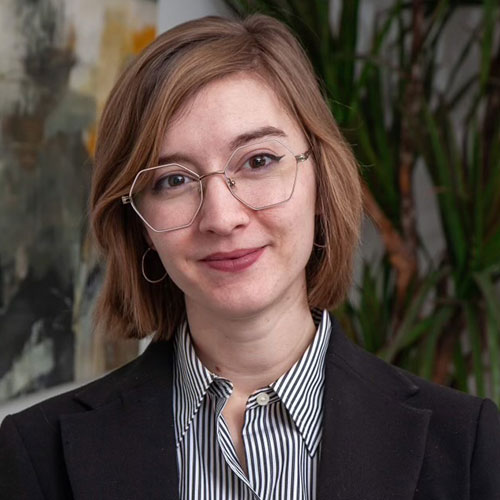Crafting a Resolute Defense against Drug and DUI Allegations
In the realm of drug and DUI charges, legal success hinges upon an attorney’s command over the scientific underpinnings of the accusations. An attorney must stand shoulder-to-shoulder with the scientific experts presenting the evidence, comprehending the intricacies at a level that matches that of these experts.
Charges related to DUI, DWI, and drug offenses are rife with scientific jargon and data tied to the evidence. This evidence crucially rests on test outcomes stemming from the defendant’s breath, blood, or urine samples. To effectively challenge the prosecution’s case, a legal representative must possess an intimate understanding of the science and possess the ability to articulate it adeptly. By doing so, they can unveil the flaws inherent in the findings, effectively undermining the prosecution’s narrative.
Trials are swayed by data, and without the capacity to contest the presented data, a defense against scientific evidence becomes a formidable challenge. Consider these five typical instances of issues encountered during the analysis of alcohol or drug presence:
* Ethanol contamination leading to erroneous readings
* Carry-over or cross contamination
* Deviations from standard operating procedures (SOP)
* Breaks in the chain of custody
* Contamination from external sources or biological elements, evidenced by additional peaks in readings
An attorney without the ACS-CHAL Forensic Lawyer-Scientist Designation may inadvertently overlook these opportunities to exonerate clients ensnared by faulty forensic data. Read on to uncover the extensive training behind the ACS-CHAL Forensic Lawyer-Scientist Designation.
The American Chemical Society: A Pillar of Scientific Authority
 The American Chemical Society (ACS), a non-profit entity chartered by Congress, stands as the globe’s premier scientific society and a fount of authoritative scientific knowledge. Within its fold, the Chemistry and the Law (CHAL) division unites over 1400 members.
The American Chemical Society (ACS), a non-profit entity chartered by Congress, stands as the globe’s premier scientific society and a fount of authoritative scientific knowledge. Within its fold, the Chemistry and the Law (CHAL) division unites over 1400 members.
In a resolute commitment to promoting justice through scientific acumen, the ACS sponsors three immersive, hands-on courses, facilitated by Axion Analytical Labs in Chicago, Illinois:
- ACS Forensic Chromatography Course: This curriculum delves into ethanol-based DUI analysis via HS-GC-FID. The course delves into the theoretical foundations of liquid and gas chromatography, Flame Ionization Detector (FID), Mass Spectrometry (EI and EC based), and UV-
- DAD work. Through observation and practical exercises, attorneys acquire profound insights into the inner workings of these instruments.
- ACS Solid Drug Dose (Forensics Drug Analysis) Course: Encompassing the instrumental analysis of solid drugs in their pre-consumption state, this course employs techniques such as FTIR, GC-MS, Colormetrics, Microscopy, and Thin Layer Chromatography. Attorneys delve into the analysis of seized drugs, comprehending a spectrum ranging from illicit drugs to drugs of abuse. This comprehensive training empowers lawyers to discern the nature of seized substances, be they solids, liquids, powders, or synthetic compounds.
- ACS Forensic DUID (Forensic Principles of DUID) Course: Covering drug pharmacology and its implications for driving, this course dissects the instrumental analysis facilitated by GC-MS. Attorneys grasp the nuances of testing biological specimens (urine, blood, hair, and oral fluid) for illicit substances. The curriculum spans both quantitative and qualitative instrumental analysis, while also delving into the pharmacokinetic and pharmacodynamic aspects of drugs.
These lab-centric courses immerse attendees in sample development, testing, and data interpretation, replicating the rigor of forensic laboratory methodologies. The ACS’s acknowledgment of this training transcends mere attendance, attesting to the participants’ mastery of highly specialized knowledge.
Earning the Coveted ACS-CHAL Forensic Lawyer-Scientist Designation
 Securing the title of an ACS-CHAL Forensic Lawyer-Scientist mandates fulfilling certain prerequisites:
Securing the title of an ACS-CHAL Forensic Lawyer-Scientist mandates fulfilling certain prerequisites:
- Maintaining Active Bar Standing: Attorneys must uphold good standing within their local state bar.
- ACS-Chemistry and the Law Division Standing: Good standing within the ACS-Chemistry and the Law Division is essential.
- Bar Compliance and Regulations: Attorneys must promptly address CHAL’s inquiries about their bar status, ensuring alignment with bar status regulations.
- Completion of Rigorous Courses: Successful completion of the ACS Forensic Chromatography course (taken twice), the ACS Solid Drug Dose (Forensics Drug Analysis) course, and the ACS Forensic DUID (Forensic Principles of DUID) course.
- Demonstrated Proficiency: Passing a knowledge and proficiency examination, attesting to comprehensive understanding.
Course participants exit with access to an invaluable repository of resources, including industry guidelines and instrumentation manuals. They also join an active “Forensic Chromatography Lawyer” Google group, facilitating ongoing knowledge exchange among peers.
For those confronting DWI, or drug crime charges, accepting subpar representation inadequate in deciphering the complexities of chemical evidence and specimen testing is an untenable choice. Deandra Grant enters into courtrooms with unassailable expertise, deftly navigating the terrain laden with scientific nuances, data intricacies, and expert testimonies. Before entrusting your defense in a DUI, DWI, or drug crime case, reach out to Deandra Grant at Deandra Grant Law. Through a detailed discussion, Attorney Grant will unveil her scientific acumen and hands-on training, promising a favorable trajectory for your case.

 Securing the title of an ACS-CHAL Forensic Lawyer-Scientist mandates fulfilling certain prerequisites:
Securing the title of an ACS-CHAL Forensic Lawyer-Scientist mandates fulfilling certain prerequisites:





